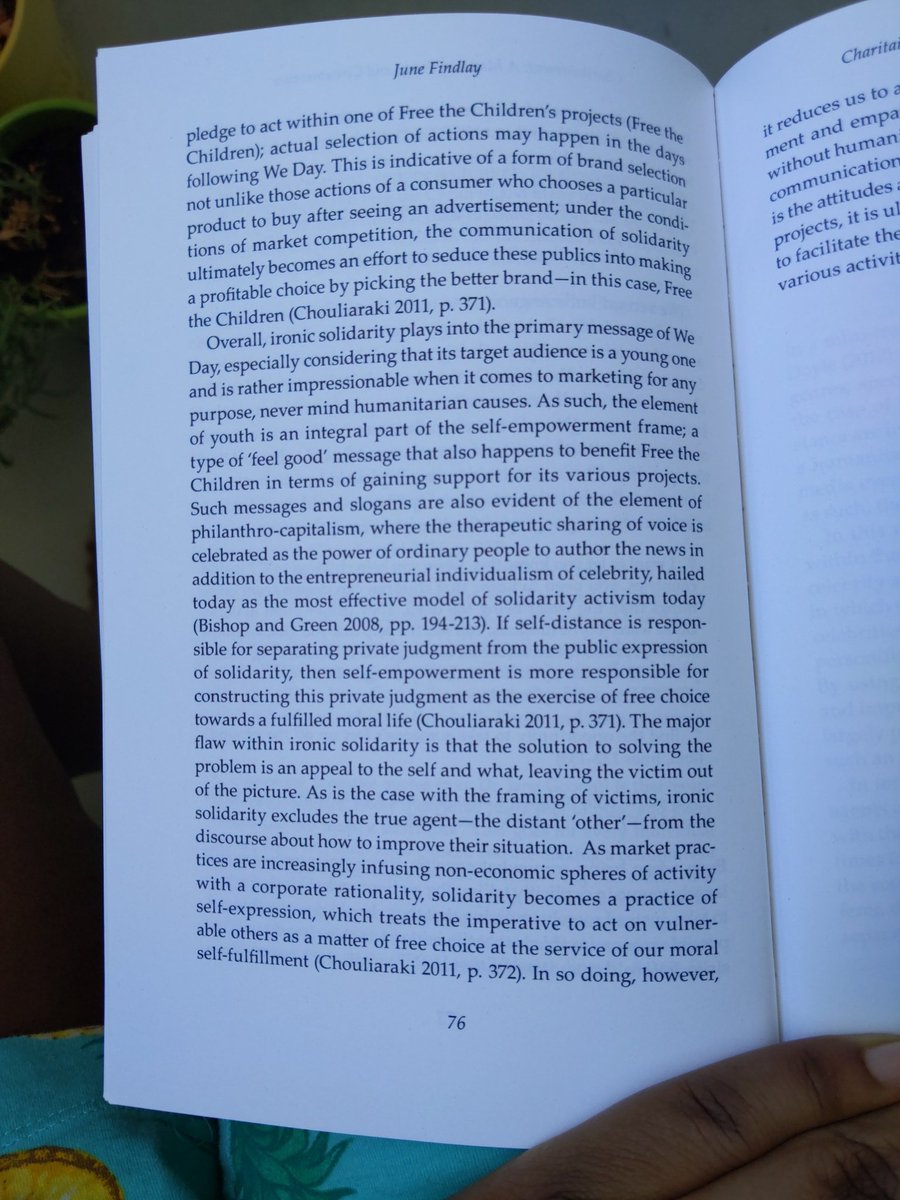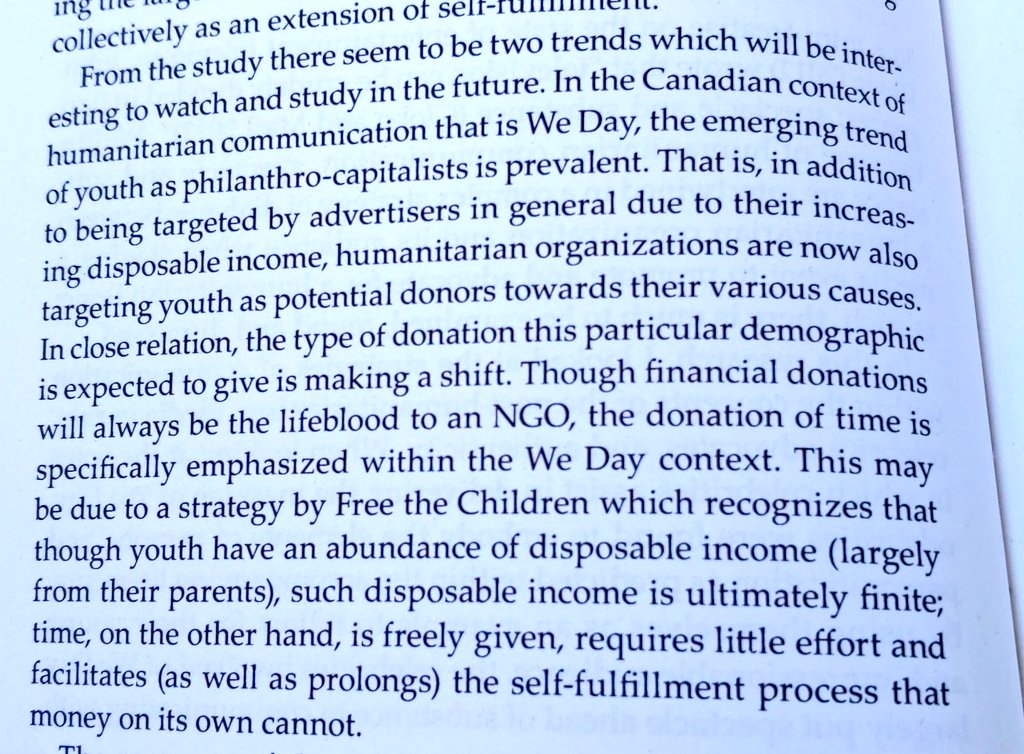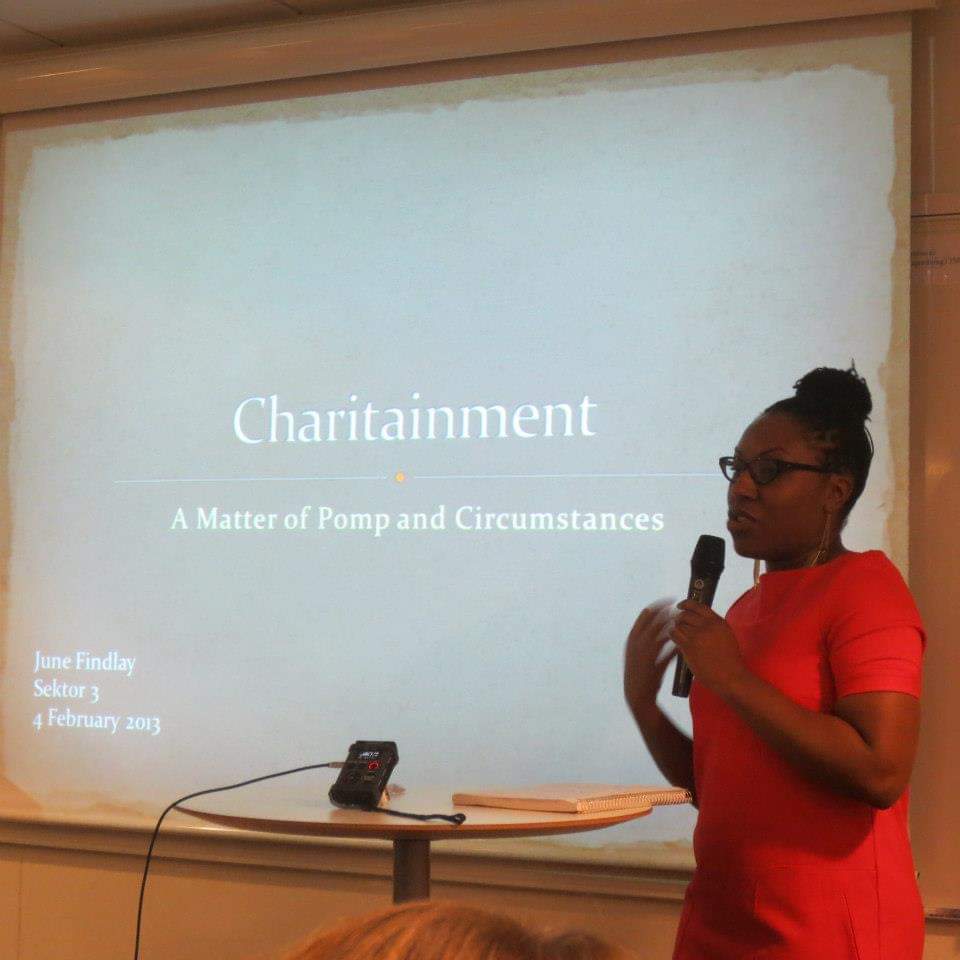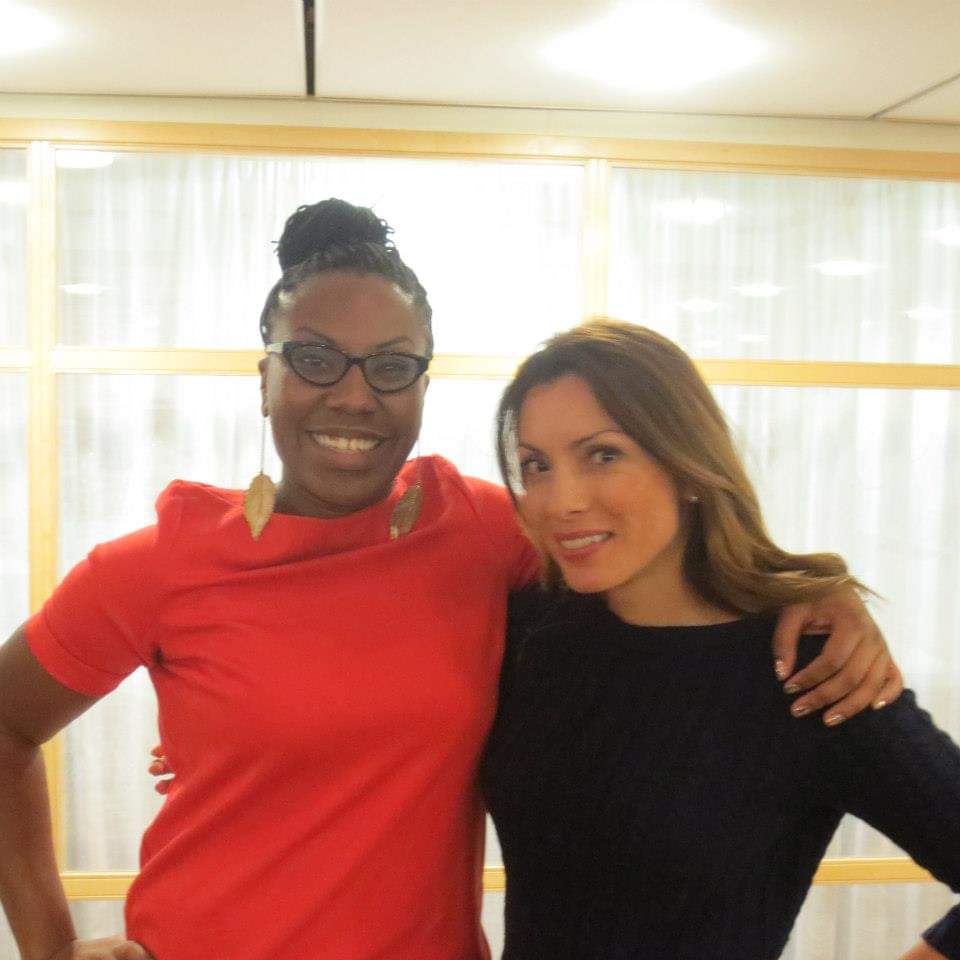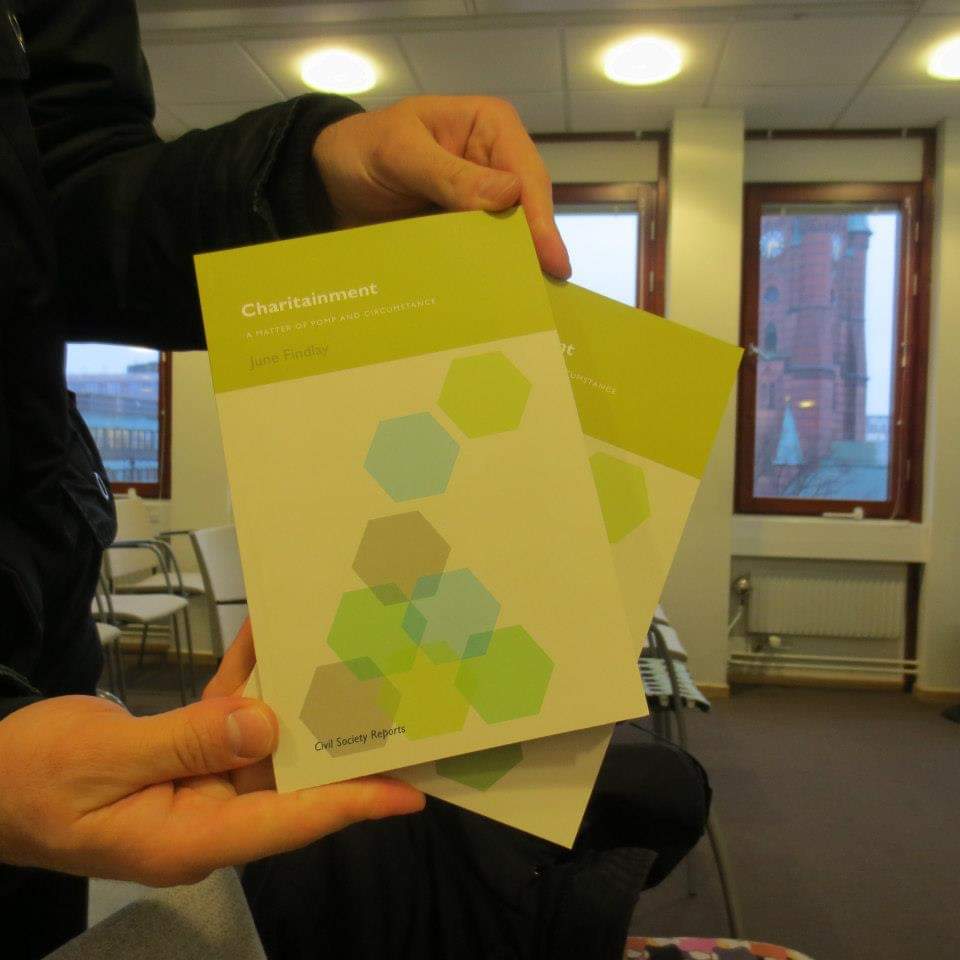WE Charity finally getting dragged out here. You love to see it.
If you& #39;ve ever worked in non-profit, you BEEN knowing.
I should dust off my *award winning* masters thesis I wrote about their questionable marketing + communications tactics from EIGHT years ago and share it.....
If you& #39;ve ever worked in non-profit, you BEEN knowing.
I should dust off my *award winning* masters thesis I wrote about their questionable marketing + communications tactics from EIGHT years ago and share it.....
Um, WOW. So many of you pulled up!
Let& #39;s get acquainted. Hi, I& #39;m June, a social media marketing/creative strategist based in Toronto.
The path to that began with my Masters in Media and Communication Science at Mid Sweden University in Sundsvall, Sweden.
Let& #39;s get acquainted. Hi, I& #39;m June, a social media marketing/creative strategist based in Toronto.
The path to that began with my Masters in Media and Communication Science at Mid Sweden University in Sundsvall, Sweden.
My curiosity w/ WE began from long before, when I was studying at York University (Glendon College) with a major in International Relations. I also have an extensive volunteer background with a few orgs, incl my local church with whom I went on three international mission trips.
I suppose what& #39;s always informed my worldview and my work is studying people, and why they are motivated to do the things they do. Even more facscinating to me is how organizations persuade people to do things, especially en masse.
Unlike many of my classmates who were going to write about elections/ political advertising, I wanted to write about why major charities--who play a role in how the world works--have powerful persuasion skills.
At the time, in 2012, WE Day was a big deal in Canada and the US.
At the time, in 2012, WE Day was a big deal in Canada and the US.
Being in Sweden, however, where celebrity culture was not as prevalent as it was in North America, I had to persuade my supervisor on why studying a charity whose primary target was young people was important.
I showed him a video of WE Day on YouTube.
I showed him a video of WE Day on YouTube.
He said it reminded him of some rallies he has seen on (US) tv, and after I told him these rallies persuaded 1000s of young Canadians and Americans to donate their time and money abroad and at home in a way that no other charity could, he accepted.
I think he was just curious.
I think he was just curious.
At the time, the word "Charitainment" was beginning to be used more. Def the phenomenon of celebrities using their influence and power in media spectacles to assist orgs to raise awareness while also providing entertainment for the intended audience. (Time, 2015)
In academia, there was curiousity around this phenomenon, but not a lot of work except for that of Lilie Chouliaraki, whose articles on media spectacle I found fascinating. I wanted to help build this work, but from a North American perspective, which didn& #39;t exist at the time.
With Chouliaraki& #39;s work as a basis and my knowledge and experience of the North American charity market, I set out to explore WE Charity& #39;s media spectacle as an extension of its overall mandate and how it (expertly) used celebrity to motivate young people.
I used 4 central concepts to inform my work: post-humanitarianism, media events, celebrity advocates and authenticity.
The one that was most important to me was authenticity. To illustrate, think about the difference between Audrey Hepburn and Angelina Jolie.
The one that was most important to me was authenticity. To illustrate, think about the difference between Audrey Hepburn and Angelina Jolie.
Both intl stars, known for their acting careers + their lives outside of their work. Both UN Goodwill Ambassadors.
The difference: Hepburn used her celebrity to fuel awareness of situations in other countries. Jolie did the same, but also used it to fuel her personal brand.
The difference: Hepburn used her celebrity to fuel awareness of situations in other countries. Jolie did the same, but also used it to fuel her personal brand.
Using discourse analysis and YouTube videos of several celebrity speeches, I set out to determine to following:
How do celebrities involved with WE Day communicate its key messages?
How is the image of "victims" and their suffering constructed in the course of WE Day comms?
How do celebrities involved with WE Day communicate its key messages?
How is the image of "victims" and their suffering constructed in the course of WE Day comms?
How is the audience (both present at the live event and at home) motivated to act collectively?
Most of all: has the NGO, while becoming strong in projecting their purpose through th media, lost their ability to convey the real aspects of their purpose and issues?
Most of all: has the NGO, while becoming strong in projecting their purpose through th media, lost their ability to convey the real aspects of their purpose and issues?
To answer these questions I analyzed several YouTube videos featuring Canadian celebrities (I won& #39;t name them here, but they are in the book/article).
Answer 1: celebrities that WE Charity recruited were often known for being "of the people" even if they were far from it. In academia, that& #39;s called persona and personification.
"I& #39;m just like you."
"I& #39;m just like you."
By going on the best versions of WE& #39;s infamous trips (which if you know people who& #39;ve been on them, they know otherwise), the celebrities could recount their experiences and relate to a very impressionable audience, using humanization and witnessing strategies.
Answer 2: the usual (white) gaze and othering of African children played a key role in constructing a state of suffering and motivation to help.
What was particularly appealing for me was they way in which this was conveyed through the speeches. Looking back on it now is https://abs.twimg.com/emoji/v2/... draggable="false" alt="😬" title="Grimasse schneidendes Gesicht" aria-label="Emoji: Grimasse schneidendes Gesicht">
https://abs.twimg.com/emoji/v2/... draggable="false" alt="😬" title="Grimasse schneidendes Gesicht" aria-label="Emoji: Grimasse schneidendes Gesicht">
What was particularly appealing for me was they way in which this was conveyed through the speeches. Looking back on it now is
These speeches would also oversimplify the very complex situations of international relations and humanitarian efforts by using what& #39;s called "pamphleteering". By doing this, WE creates a spectacle of suffering that the "victim" has no say in.
Answer 3: the key to this is what& #39;s called "ironic solidarity" (maybe my favourite academic term, lol). In laymen& #39;s terms one might call it "slacktivism"--doing something without really understanding why it needs to be done, who are the actors--and most of all, who benefits.
There are two aspects to ironic solidarity that are important in WE Day& #39;s success.
First is the ability to separate yourself from the situation, and the second is the ability to empower yourself to act while marginalizing those you& #39;re helping.
First is the ability to separate yourself from the situation, and the second is the ability to empower yourself to act while marginalizing those you& #39;re helping.
In my conclusion, I wrote about my genuine fascination (and unease) with how WE Day works. What& #39;s especially interesting about the paragraph below is that now in reading 8 years later, not much has changed.
What has truly amazed me is how then Me-to-We grew larger and larger, becoming WE Charity, operating internationally...and largely being unchecked. They& #39;re not the only org to do this of course, but the level of blind trust is quite something.
I defended my work to an impressed panel of professors in 2012. Later that year I entered my thesis into a national contest for Masters thesis held by CSO Sektor 3...and won. This is the monograph that resulted.
In 2013, I traveled back to Sweden to give a talk on my work, and afterwards attend a panel from 4 Swedish media personalities (including Alexandra Pascalidou!) discussing my work. Was humbled greatly.
Sadly, Sektor 3 is no more, but a quick Google search has told me that the book is still available here : https://europeanpress.se/product/charitainment-a-matter-of-pomp-and-circumstance/
Thinking">https://europeanpress.se/product/c... also about creating a PDF to upload--let me know if you& #39;d be interested in getting a copy!!
Thinking">https://europeanpress.se/product/c... also about creating a PDF to upload--let me know if you& #39;d be interested in getting a copy!!
Wow, you made it to the end. Thanks so much for listening/reading, it means a lot. Charity work and the promotion of it is still important, but it must be done to the best of its ability, in a manner that shows integrity and does not use shady tactics to do so.
My DMs are open!
My DMs are open!

 Read on Twitter
Read on Twitter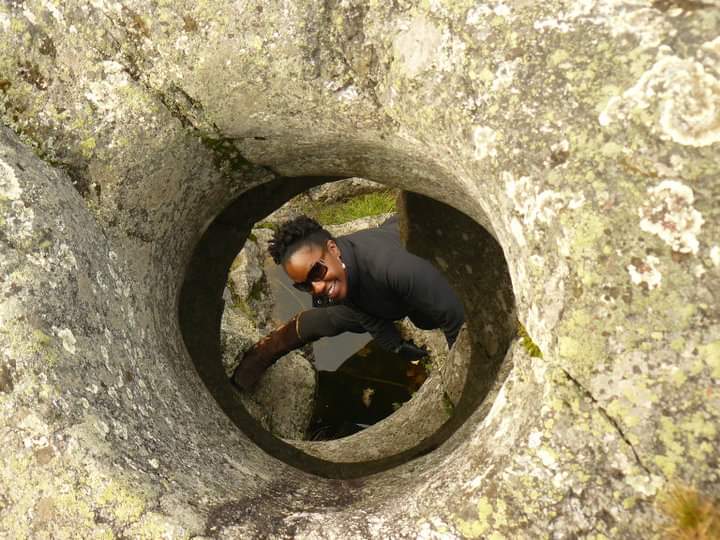
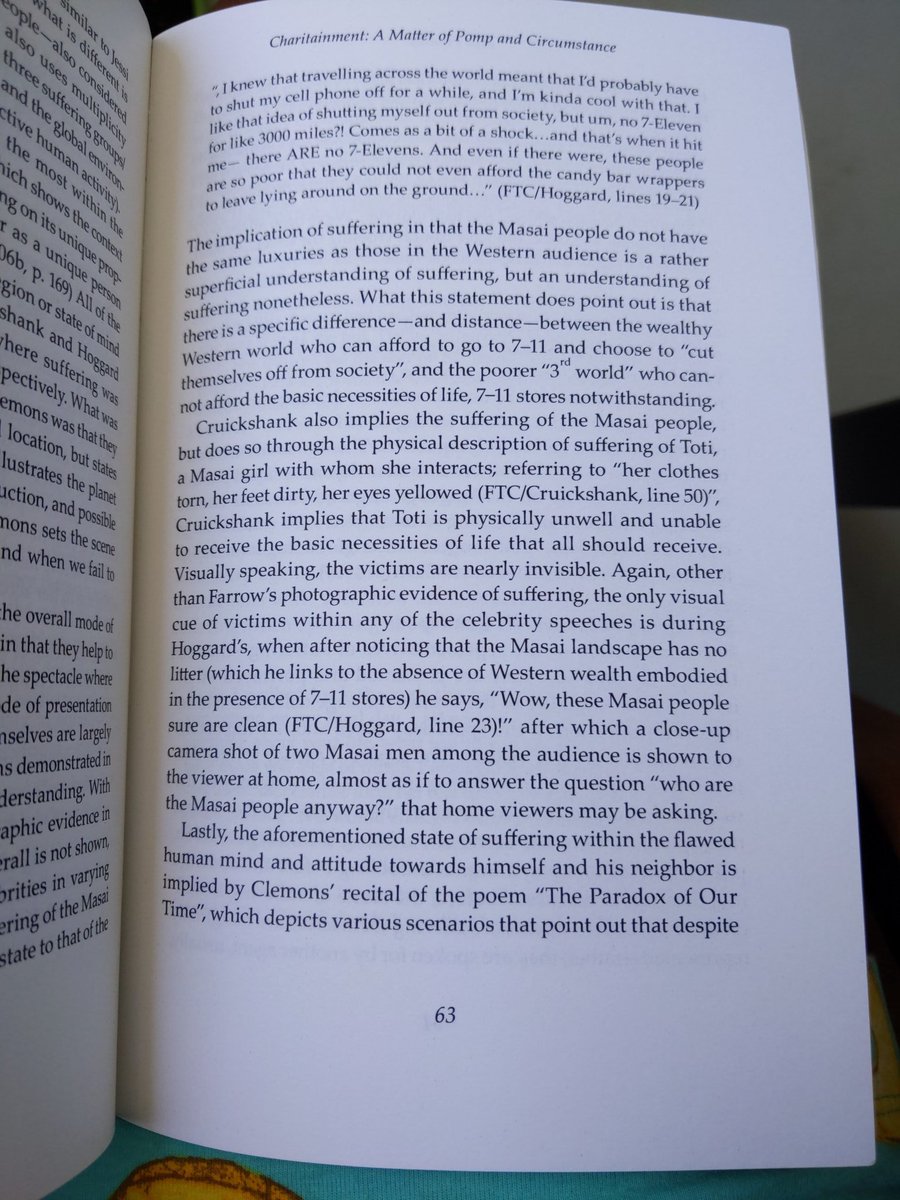 " title="Answer 2: the usual (white) gaze and othering of African children played a key role in constructing a state of suffering and motivation to help.What was particularly appealing for me was they way in which this was conveyed through the speeches. Looking back on it now is https://abs.twimg.com/emoji/v2/... draggable="false" alt="😬" title="Grimasse schneidendes Gesicht" aria-label="Emoji: Grimasse schneidendes Gesicht">" class="img-responsive" style="max-width:100%;"/>
" title="Answer 2: the usual (white) gaze and othering of African children played a key role in constructing a state of suffering and motivation to help.What was particularly appealing for me was they way in which this was conveyed through the speeches. Looking back on it now is https://abs.twimg.com/emoji/v2/... draggable="false" alt="😬" title="Grimasse schneidendes Gesicht" aria-label="Emoji: Grimasse schneidendes Gesicht">" class="img-responsive" style="max-width:100%;"/>

